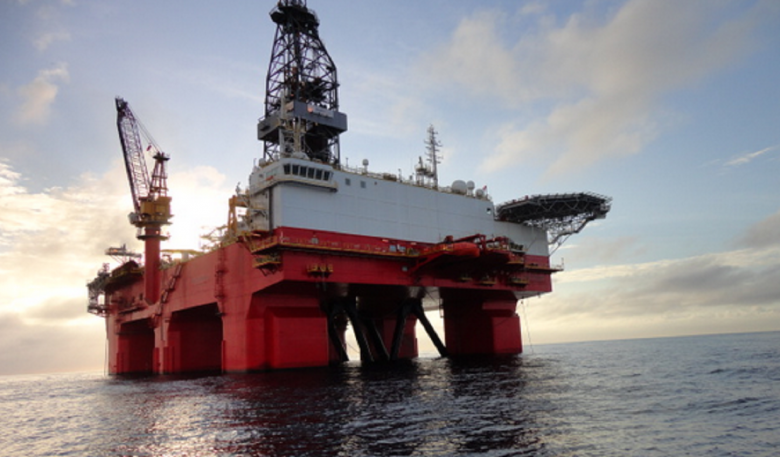
ROSNEFT: OFF THE DEAL $55 BLN

Igor Sechin spent $55 billion in 2013 to buy competitor TNK-BP and create a Russian oil colossus, pumping about 5 percent of the world's crude.
Almost two years later and investors have written off the deal. Battered by sanctions and oil's accelerating price crash, OAO Rosneft (ROSN) has lost 38 percent of its market value this year in dollar terms and today the whole company, TNK-BP and all, is worth $50 billion.
And buying TNK-BP has left Sechin, Rosneft's chief executive officer and a long-time ally of Russian President Vladimir Putin, with a lot of debt to repay. State-controlled Rosneft owes about $60 billion to banks and bondholders, making it more indebted relative to earnings than any large oil producer apart from Brazil's Petroleo Brasileiro SA.
"Their aggressive expansion and debt accumulation made them more vulnerable to the falling oil price and the effect of sanctions," Oleg Popov, who helps oversee $1 billion at Allianz Investments in Moscow, said by phone.
Sechin, who had pledged the combined company would be worth $120 billion, has bigger ambitions than simply creating Russia's largest oil producer. Putin's point man for energy has sought to build a global oil major, swapping drilling rights at home for exploration blocks from Norway to the Gulf of Mexico. He bought production projects in Venezuela and half an oil refinery in Germany.
Balance Sheet
As the company's balance sheet gets more stretched, he will find it harder to achieve those aims, providing an example of how the Ukraine crisis has harmed some of Russia's largest companies and limited their ambitions to expand globally.
Rosneft, which achieved a market value of about $96 billion in the weeks after the TNK-BP deal was announced, has underperformed both Russian and international competitors this year.
"If you have to sell some oil stock you will sell the most leveraged one, and that is Rosneft in Russia," Renata Klita, an analyst at Blackfriars Asset Management Ltd. in London, said by e-mail. Rosneft's borrowing creates a higher sensitivity to crude prices, she said.
Sanctions imposed to punish Russia's annexation of Crimea and policy toward Ukraine will limit Rosneft's access to refinancing for existing loans. The Moscow-based company has already applied for state funds as it faces $30 billion of debt that's due by the end of next year.
Rosneft Returns
Rosneft returns, defined as the share price plus dividend payments, have been minus 31 percent over the past year in London, according to data compiled by Bloomberg.
Brent crude's crash, dipping below $72 a barrel yesterday from over $115 in June, is not totally to blame. Royal Dutch Shell Plc (RDSA) returned 14.8 percent and Total SA (FP) 5.3 percent in the same period.
Rosneft's London-traded shares fell 4.1 percent to $4.727 at 2:24 p.m. local time, the lowest intraday since April 2009, as Brent crude oil prices plunged to a four-year low.
Geopolitical risks, the Kremlin's use of state enterprises as vehicles to facilitate government policy, and a dedication to size rather than investor returns is still "a large part of the Russian market and of Rosneft's DNA," Bert Van Der Walt, emerging markets portfolio manager and investment analyst at Mirae Asset Global Investments LLC, said by e-mail.
"I do not expect that valuations will close the discount gap on its peers entirely," he said.
Energy Sphere
Returns on investment in the energy sphere are a long-term endeavor with horizons extending over 15 years, Rosneft's press service said in an e-mail. The company continues to work on synergies from the TNK-BP deal, Rosneft said.
The current share price comes from geopolitical factors and sanctions, the company said. Rosneft's out-performance of Russia's market through July, before sanctions were imposed on the company, is a testament to the quality of management, Rosneft said.
Rosneft's Sechin sees oil returning to as high as $150 in five to seven years, he said in an interview with Bloomberg News is September. Crude may average about $70-$75 a barrel next year, he told reporters today in Sochi that Rosneft should be able to service its debt said Alexey Bulgakov, a fixed income analyst at Sberbank CIB. The company, which must also repay 804 billion rubles ($16.3 billion) of advance payments with future crude supplies, won't have much left over for projects beyond that, he said. Rosneft does not account for the advance payments as debt in financial reporting.
"The top priority issue for the company is debt refinancing," Bulgakov said. "Rosneft, in theory, can be kind of OK even if the oil price goes to $75, but -- a big but -- it would have to forget about all capex apart from maintenance."
bloomberg.com





